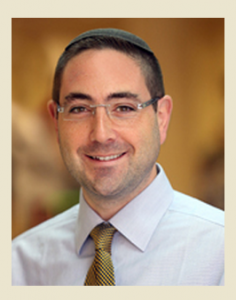Living Torah by Rabbi Ari Enkin
 This week’s Torah portion is “Pinchas”, named after the righteous Pinchas (Phineas) who was both a descendant of Aaron and a High Priest in his own right. Pinchas is probably most famous, however, for his act of zealousy against the immorality that was running rampant after the Balak/Bilaam episode that we read about last week. When the Moabites and Midianites successfully lured the Jewish people into a lifestyle of immorality, Pinchas took his spear and cast it right through Zimri and his Midianite mistress, Kozbi, killing them both in the process. This put an end to the immorality as well as the idolatrous practices that crept into Jewish life as a result of the mingling with the Moabites and Midianites. Also of note in this week’s Torah portion is the formal appointment of Joshua’s as the future successor to Moses and leader of the Jewish people.
This week’s Torah portion is “Pinchas”, named after the righteous Pinchas (Phineas) who was both a descendant of Aaron and a High Priest in his own right. Pinchas is probably most famous, however, for his act of zealousy against the immorality that was running rampant after the Balak/Bilaam episode that we read about last week. When the Moabites and Midianites successfully lured the Jewish people into a lifestyle of immorality, Pinchas took his spear and cast it right through Zimri and his Midianite mistress, Kozbi, killing them both in the process. This put an end to the immorality as well as the idolatrous practices that crept into Jewish life as a result of the mingling with the Moabites and Midianites. Also of note in this week’s Torah portion is the formal appointment of Joshua’s as the future successor to Moses and leader of the Jewish people.
But what I want to focus on in this week’s United with Israel Torah portion is something else that is presented in this week’s Torah reading, and that is: the sacrificial services. Further on in this week’s Torah portion we read about the daily, Shabbat, and Holiday sacrifices that were required to be offered in the Beit Hamikdash, the holy Temple, in Jerusalem.
The question is asked: Offerings? Sacrifices? NOW?!?! Such a discussion belongs in the book of “Leviticus”, where so many other sacrifices and sacrificial procedures are presented, not here in the book of Numbers! Why did the Torah present us with these communal sacrifices now?
One of the answers given to this question is because –in the order of events- the Jewish people are now less than two years away from their entry into the Land of Israel. Indeed, the news is out the Joshua will be the new leader and preparations for “Aliya” (immigration to Israel) are now officially underway. The communal sacrifices are a vital component for inheriting the Land of Israel. In fact, our sages teach us that in many ways, God gave us the land of Israel in the merit of the sacrifices that would be offered there.
Today, however, we don’t have sacrifices. We don’t even have a Beit Hamikdash (Holy Temple). In fact, we now find ourselves during the annual “Three Weeks” of mourning where a sense of sadness is in order as we ponder the loss of our Beit Hamikdash. We do have something that takes the place of sacrifices, however, and that is: PRAYER. The Jewish people pray three times a day in order to recall the three daily services that took place in the Beit Hamikdash. In place of the daily morning sacrifice, the Jews recite the “Shacharit” prayer, in place of the afternoon sacrifice, Jews recite the “Mincha” prayer, and in place of the nightly “clean up” of the altar and the burning of any remaining sacrifices left over, the Jews recite the “Maariv” prayer. As the prophet Hoshea says: “Our lips are a substitute for the bulls [that were offered on the altar]”.
Today we are in the Land of Israel. We are home. We control our Divine gift and inheritance. But sadly, the Temple is not yet rebuilt. Prayer is our spiritual weapon. Just as the sacrifices were daily, so must be the prayers of very human being in the world. We must pray for our health, for our families, for success, and together, we must pray for peace in the Land of Israel, and by extension, the entire world. That is one of the greatest “sacrifices” you can make each day. And it is one of the most powerful things we can do. Never underestimate the Power of Prayer!
Shabbat Shalom from Israel!
Rabbi Ari Enkin